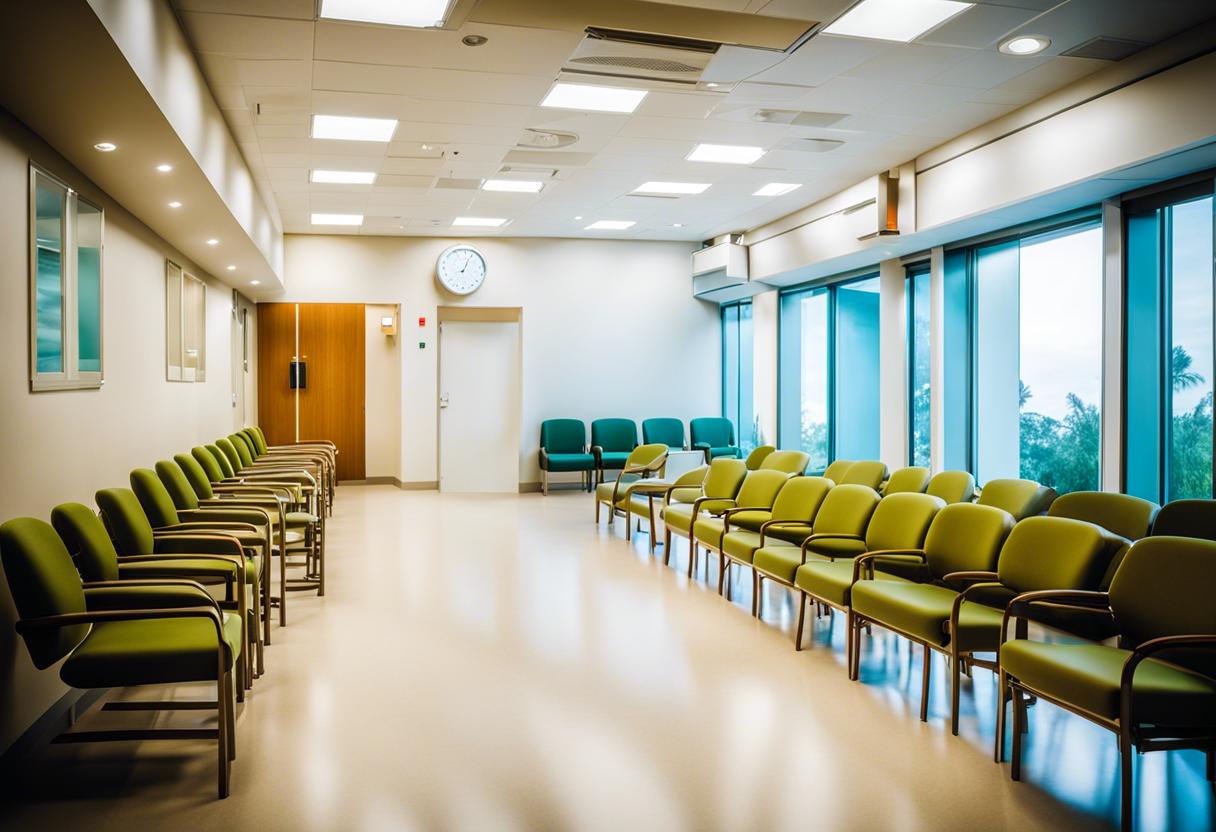Leading specialists in the UK have raised concerns over delayed surgeries and missed waiting time targets for cancer tests due to insufficient staff, lack of beds and insufficient theatre space. Addressing Taoiseach Simon Harris in a letter, they noted that only two of the past seven budgets provided dedicated funds for Ireland’s National Cancer Strategy.
The specialists asked Mr. Harris, who served as health minister when the 2017 strategy was launched, to revoke the decision to deny recurrent funding for the National Cancer Control Programme in 2024. They highlighted several shortcomings, including inadequate infrastructure investment despite the increasing number of cancer cases, and radiotherapy services operating considerably under capacity.
The letter also expressed concern about Ireland’s significantly low participation in clinical trials, with only 6% of cancer patients involved, a figure well below the modest target. The country’s slow pace of making novel treatments accessible to public patients, relative to its western European counterparts, was also pointed out. As evidenced by data from 2019, the most recent year of available data, Ireland had the third-highest cancer mortality rate in western Europe. Given the current strain on services, they warned of the potential for Ireland’s cancer outcomes to regress.
Emphasizing the views of the 20 co-signatories, Averil Power, the chief executive of the Irish Cancer Society, stressed on the urgent need to address gaps in funding. She noted the critical importance of the letter in highlighting disruptions and delays faced by patients and their families, urging the incoming Taoish each and his government to take immediate action.
The letter was released following statements from the Minister for Health Stephen Donnelly, who acknowledged the need for increased productivity within the health service, despite significant state investment in funding and staffing in recent years, and resultant reduced waiting lists. Despite consultants working as diligently as ever, he noted that they spent less time on outpatient care and saw fewer patients annually since 2016, circumstances for which they were not at fault. He further accepted the need to provide increased support to the expanded medical staff.
The Minister has stated that although increased resources and staff reinforcement in the health service have led to a surge in treated patients, it does not correlate proportionately with the influx of added resources. Despite the health budget experiencing a rise of over €8 billion and personnel increasing by 30% from 2016 to 2022, recent data indicates that activity growth within hospitals is falling behind, achieving less than a 10% rise for the same period. The Minister highlighted that the increase in staff, including 2,500 doctors and 5,600 nurses, was not matching the pace of hospital activities.
The Department of Health announced that an additional €70 million funding had been dedicated for cancer services in 2021-2022, comprising of €40 million for new developments and €30 million for new cancer drugs. This considerable financial injection has greatly enhanced patient access to cancer diagnosis, treatment, and associated support, according to the department.
The national cancer services have hired over 670 new staff since 2017, featuring 200 nurses, 100 consultants, and 180 health and social care professionals working in specified cancer centres. Additionally, ongoing improvements in medical oncology, radiation oncology, and surgical oncology services have been noted. Ireland’s uptake of breast, cervical, and bowel screening programmes reportedly matches well with other EU nations.

